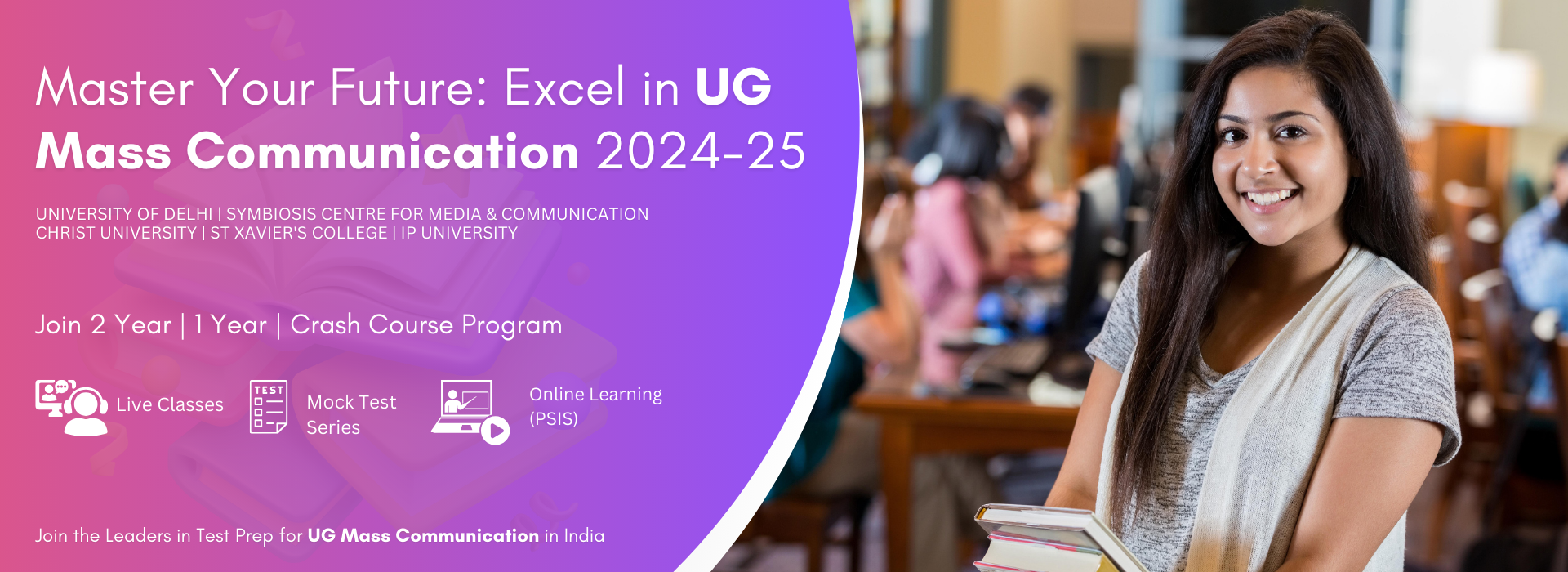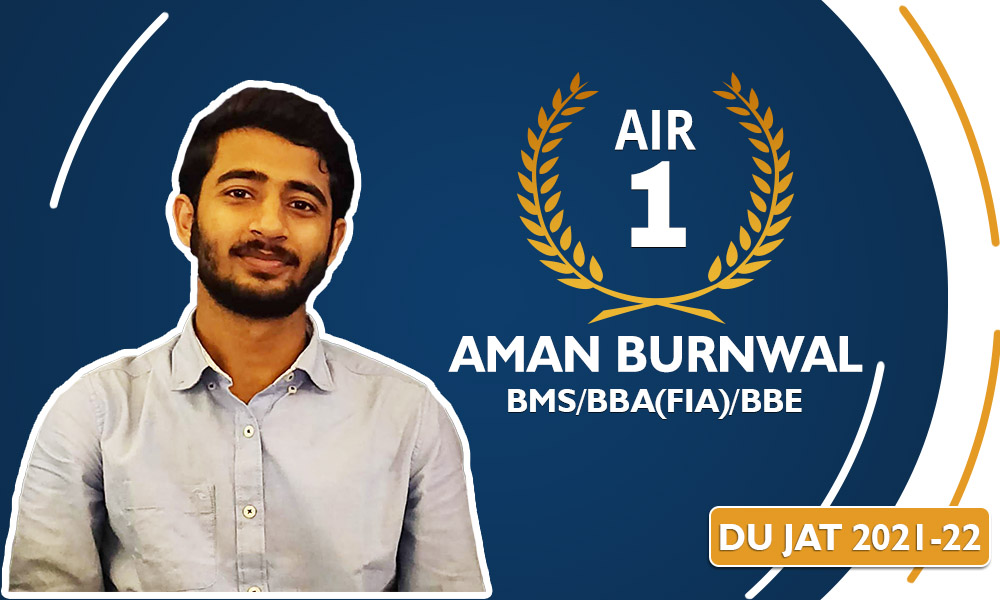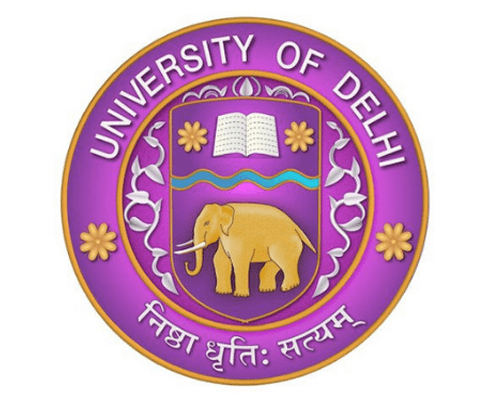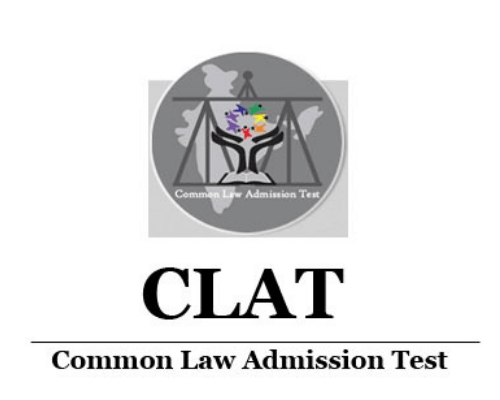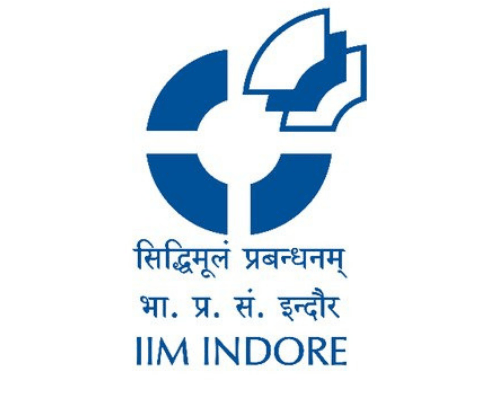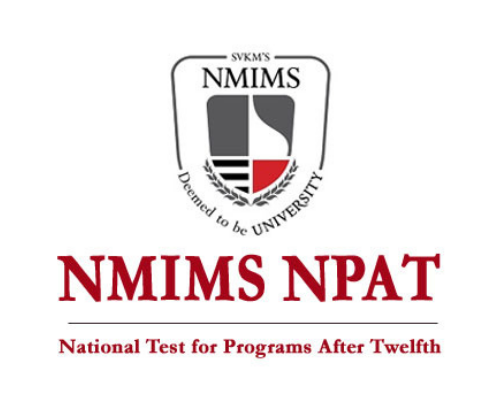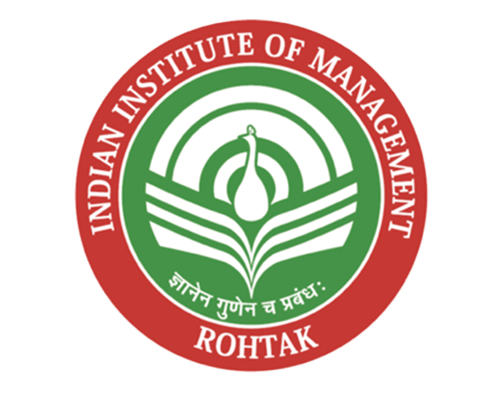No, it is not mandatory to have a background in mass communication or journalism. Students from various academic backgrounds are eligible to apply for the course. However, some prior knowledge or experience in the field can be beneficial.
University Of Delhi
The University of Delhi offers renowned Mass Communication Programs across its campuses. These courses immerse students in multimedia platforms, technology, and communication theory, teaching skills in researching, reporting, and content creation. Students also gain technical expertise in layout and web design, photography, and radio/video production. The curriculum covers Media Studies foundations, preparing graduates for roles like journalist, actor, director, editor, producer, and more in Print, Broadcast, and Social Media.
Top Mass Comm. Colleges in Delhi University under CUET
| Top Colleges | Seats | Eligibility |
|---|---|---|
| BA(Hons.) Journalism | ||
| Lady Sri Ram College (W) | 32 |
Combination I: English from List A + General Test ONLY or Combination II: English from List A + Any two subjects from List B1 + Any two subjects from either List B1 or List B2 ONLY |
| Delhi College of Arts and Commerce | 45 | |
| Kamla Nehru College (W) | 53 | |
| Maharaja Agrasen College | 67 | |
| Bharati College (W) | 66 | |
| Kalindi College (W) | 65 | |
| Institute of Home Economics (W) | 67 | |
| Total Seats | 395 | |
| BA (Hons.) Hindi Patrakartia | ||
| Aditi Mahavidyalaya (W) | 65 |
Combination I: Hindi from List A + General Test: Only or Combination II: English from List A + Any two subjects from List B1 + Any two subjects from either List B1 or List B2 ONLY |
| Dr. Bhim Rao Ambedkar College | 89 | |
| Sri Guru Naak Dev Khalsa College | 46 | |
| Ram Lal Anand College | 29 | |
| Total Seats | 229 | |
| BA (Hons.) Multimedia and Mass Communication | ||
| Indraprastha College for Women (W) | 72 | Any one Language from List A + Any one subject from either List B1 or List B2 + General Test ONLY |
| Five Year Integrated Program in Journalism | ||
| Delhi School of Journalism (DSJ) | 110 | Any one Language from List A + Any one subject from either List B1 or List B2 + General Test ONLY |
Program Criteria
General category candidates require at least 50% of the total points, while SC/ST candidates need 45% in class 12th.
Students to secure a seat in the prestigious University of Delhi colleges must appear in Common University Entrance Test (CUET) in any of the following subject combinations:
- Combination I: English from Section 1 +
Any two subjects from List B1 (Section 2) +
Any one subject from either List B1(Section 2)
or
List B2(Section 2) OR - Combination II: English from Section 1 + SECTION 3 of CUET (General Test)
*Note - Merit will be based on the best CUET score obtained from any of the above-mentioned combinations of subjects.
CUET Paper Pattern
| Section | Description | Questions to Attempt |
|---|---|---|
| Section 1 - Language | This section predominantly assesses English language skills including Reading Comprehension, Vocabulary, and Grammar. It caters mainly to students from CBSE schools, with English being the preferred language. | Attempt any 40 out of 50 questions |
| Section 2 - Domain (Subjects in Class 12) | This section encompasses 29 subjects from the +2 level, strictly following the NCERT syllabus. Students can choose between two and six subjects based on their preferences. | Attempt any 40 out of 50 questions |
| Section 3 - General Test | The General Test comprises questions on Basic Mathematics, Basic Reasoning and Mental Ability, and Basic General Knowledge. It is mandatory for certain courses, details of which are available on participating colleges' official websites. | Attempt any 50 out of 60 questions |
Exam Structure
| Aspect | Details |
|---|---|
| Total Subjects | 63 (33 languages, 29 domain-specific, and 01 General Test) |
| Language Options | Assamese, Bengali, Hindi, English, Gujarati, Kannada, Marathi, Punjabi, Odia, Malayalam, Tamil, Telugu, and Urdu |
| Total Questions | 40 out of 50 questions for all sections and 50 out of 60 for the General Test (option to attempt 10 questions). |
| Test Duration | 45 minutes for all sections, except Mathematics/Applied Mathematics, Chemistry, Accountancy, Physics, Economics, Computer Science/Informatics Practices, and General Test, which have a duration of 60 minutes. |
Frequently Asked Question
The field of mass communication offers a wide range of career opportunities. Graduates can work as journalists, news reporters, editors, content writers, public relations professionals, advertising executives, media researchers, filmmakers, television producers, radio jockeys, and more. They can find employment in media organizations, advertising agencies, broadcasting companies, publishing houses, public relations firms, and digital media platforms.
Yes, Delhi University often collaborates with various media organizations and institutes to provide internships and practical training opportunities to students. These internships allow students to gain hands-on experience in the industry, enhance their skills, and develop a professional network.
Yes, Delhi University has several extracurricular activities and student societies related to mass communication. These societies organize workshops, seminars, guest lectures, film screenings, and other events to provide additional learning experiences to students. Some popular societies include the Mass Communication Research Center (MCRC), Delhi University Photography Club (DUPC), and Delhi University Debating Society (DUDS).
Delhi University offers various scholarships and financial aid options to eligible students. These scholarships are based on merit, financial need, or specific criteria set by individual departments or colleges. Students can inquire with the university or the respective college's administration for more information on available scholarships and financial assistance programs.
Yes, after completing a mass communication course, you can pursue higher studies. You can opt for postgraduate courses in mass communication, journalism, media studies, public relations, advertising, or related fields. Many universities in India and abroad offer specialized master's and doctoral programs in these areas, which can further enhance your knowledge and career prospects.
Get Personalised Counselling
Student's Testimonials
 My journey at PRATHAM has been a great one . It has played an immense role in the result that I have been able to accomplish . Maths and
logical reasoning have always been my strong points so I didn’t need to work too much on that . However for GA , I completely relied on
PRATHAM .
My journey at PRATHAM has been a great one . It has played an immense role in the result that I have been able to accomplish . Maths and
logical reasoning have always been my strong points so I didn’t need to work too much on that . However for GA , I completely relied on
PRATHAM .

BBE SS CBS, Delhi University
 PRATHAM has proud to be very helpful to me in achieving my goals and getting into collages of my choice the study material provided by
PRATHAM is the best a BMS aspirant can get by attending classes and giving test regularly cracking entrance would not a big problem.
PRATHAM has proud to be very helpful to me in achieving my goals and getting into collages of my choice the study material provided by
PRATHAM is the best a BMS aspirant can get by attending classes and giving test regularly cracking entrance would not a big problem.

St. Thomas School, Faridabad
 PRATHAM helped me in giving a direction to my efforts. the best institute, indeed for entrance prep. The faculty, extensive study
material and mock tests help me to perform to my best potential An absolute joyful experience and I am thankful to PRATHAM for it
PRATHAM helped me in giving a direction to my efforts. the best institute, indeed for entrance prep. The faculty, extensive study
material and mock tests help me to perform to my best potential An absolute joyful experience and I am thankful to PRATHAM for it

Modern Public School, Shalimar Bagh
 I’m Rohit kumar jana from salwan public school Rajendra Nagar I secured Rank 1 in IPU CET .My experience with PRATHAM was
absolutely amazing . The facilities that PRATHAM provided are on next level for example the psis system, the faculty .
I’m Rohit kumar jana from salwan public school Rajendra Nagar I secured Rank 1 in IPU CET .My experience with PRATHAM was
absolutely amazing . The facilities that PRATHAM provided are on next level for example the psis system, the faculty .

(Salwan Public School, Old Rajender Nagar
 Two year program enrollment Id -17110043 I joined PRATHAM in class 11th as I was keen on giving DU JAT exam and make my career in
business management. It has been a wonderful experience, here at PRATHAM The rigorous training, the excellent staff and the exhaustive
Two year program enrollment Id -17110043 I joined PRATHAM in class 11th as I was keen on giving DU JAT exam and make my career in
business management. It has been a wonderful experience, here at PRATHAM The rigorous training, the excellent staff and the exhaustive

(Delhi Public School, Dwarka
 I was in 12th class when i got to know about PRATHAM when i was searching for the best coaching institution i could get to prepare myself
for jumping into my career. Being interested in both law and management, i chose the full year law+management course. The course
I was in 12th class when i got to know about PRATHAM when i was searching for the best coaching institution i could get to prepare myself
for jumping into my career. Being interested in both law and management, i chose the full year law+management course. The course

Bhiwani Public School-Bhiwani
